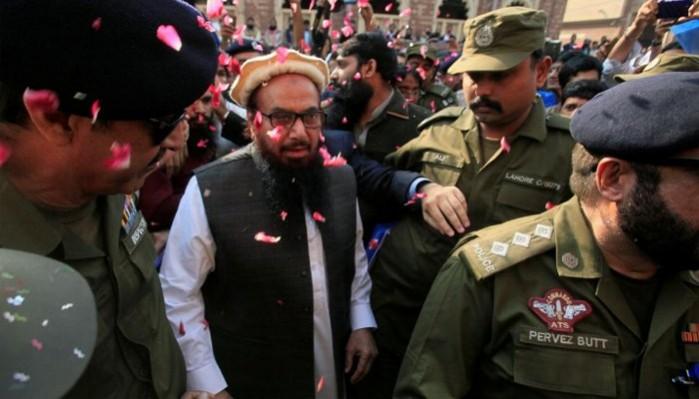US President Donald Trump on Monday made what can be considered a formal announcement that his country was stopping any and all financial aid to Pakistan.
There had already been rumours that the Trump administration was planning to block about $255 million in aid to Pakistan.

That was as good as confirmed when Trump wrote on Twitter: "The United States has foolishly given Pakistan more than 33 billion dollars in aid over the last 15 years, and they have given us nothing but lies & deceit, thinking of our leaders as fools. They give safe haven to the terrorists we hunt in Afghanistan, with little help. No more! [sic]"
The United States has foolishly given Pakistan more than 33 billion dollars in aid over the last 15 years, and they have given us nothing but lies & deceit, thinking of our leaders as fools. They give safe haven to the terrorists we hunt in Afghanistan, with little help. No more!
— Donald J. Trump (@realDonaldTrump) January 1, 2018
Deteriorating ties
The US had considered Pakistan an ally in its fight against terrorism ever since the September 11 terrorist attacks on the twin towers of the World Trade Centre in New York in 2011.
As part of that, the US has been giving Pakistan aid in the form of money as well as weapons and technology — often at subsidised costs — to combat terrorism on its soil.
However, many in the US felt betrayed when al-Qaeda leader Osama bin Laden — the most-wanted terrorist who masterminded the 9/11 terror attacks — was found hiding in Pakistan in 2011.
When a crack team of US soldiers neutralised Laden in his hideout in the early hours of May 2, 2011, it came to light that he had been living in Pakistan for quite some time, and about just a kilometre away from Pakistan Military Academy, where the best of Pakistan's armed forces are trained.
'Put on notice'
Pakistan had recently been put on notice by US Vice-President Mike Pence during a surprise visit to Afghanistan.
He was quoted as telling US troops in Afghanistan in late December 2017: "For too long Pakistan has provided safe haven to the Taliban and many terrorist organisations, but those days are over. President Trump has put Pakistan on notice."
He added: "As the President said, so I say now: Pakistan has much to gain from partnering with the US, and Pakistan has much to lose by continuing to harbour criminals and terrorists."
Even General John Nicholson, commander of US and NATO forces in Afghanistan, had said in November 2017 that the Haqqani network — which fights against NATO — continues to be supported by Pakistan's spy agency Inter-Services Intelligence (ISI).
Warnings on terrorists
The US had also taken a stand against the release of US-designated terrorist Hafiz Saeed from house arrest, also in November 2017.

Saeed, who masterminded the 2008 Mumbai terrorist attacks that killed 166 people, had been put under house arrest as India kept on providing dossier after dossier of proof of his involvement in the attacks.
However, when a Pakistani court released Saeed for "lack of proof," the White House said: "If Pakistan does not take action to lawfully detain Saeed and charge him for his crimes, its inaction will have repercussions for bilateral relations and for Pakistan's global reputation."









